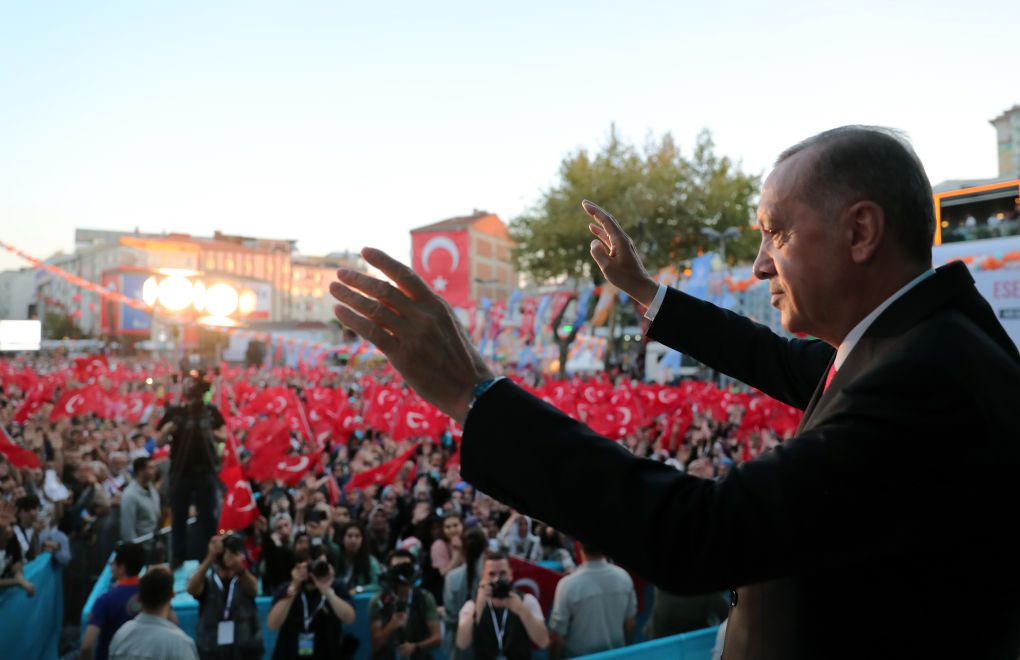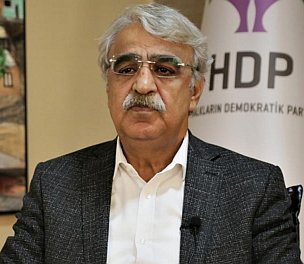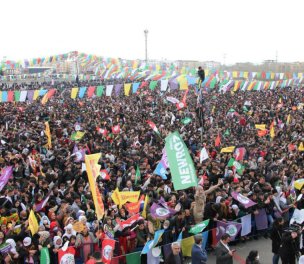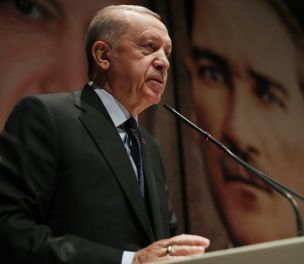Erdoğan addressing a crowd in Esenler, İstanbul at a housing project ceremony on August 19. (Photo: Presidency)
With Türkiye's general elections coming up on June 18, 2023, the margins are close between the two main opposing blocs.
According to the average of several polls conducted last month and calculated by the Türkiye Raporu company, the People's Alliance, comprising the ruling Justice and Development Party (AKP) and the Nationalist Movement Party (MHP) is losing voters, and currently has a voter share of 39.2 percent.
The popular support of the opposition bloc, consisting of the main opposition Republican People's Party (CHP), the Good (İYİ) Party, the Felicity Party (SP), the Future (Gelecek) Party the and Democracy and Progress (DEVA) Party increased to 41.5 percent.
Türkiye Raporu indicates that the votes of the Kurdish issue-focused Peoples' Democratic Party (HDP) supporters will be decisive. It currently holds a 10.3 percent vote, meaning it will likely cross the national threshold of 7 percent. The share of the undecided and other parties' votes was 9 percent.
Winning back the undecided
Özer Sencar, founder and director of the MetroPoll company, sees an opposing trend for the presidential election. Since March, 4 percent of previously undecided voters have returned to the AKP, showed the survey results he shared on Twitter.
Voters who have been floating for years have not switched to the opposition and it seems unable to pull them in, he argued. According to Sencar, it is a mistake of the opposition not to be aware of this situation and act on it. The percentage of undecided voters also decreases monthly, making the upcoming elections challenging for the opposition.
Moreover, when asked, "Do you think President Erdoğan would win if there were elections this Sunday?" 48.5 percent responded that he would win and 47.7 percent said he would not win.
A month ago, the situation looked very different, with 48.8 of the voters believing that he would lose and 45.9 that he would win.
Commenting on Metropoll's findings, economist Ümit Akçay said on Twitter that relying on the assumption that "A crisis has come, and the government will go" may lead to disappointment for the opposition.
The government would be able to curb the devastating effects of high inflation for at least a period with minimum wage increases, social benefits, and social housing projects, he argued. For example, it promised to keep assisting households with their energy bills until April 2023.
Furthermore, this September, the government announced a plan to build some 500,000 housing units in the next five years. The program comes amid soaring housing and rental prices throughout the country, especially in the big cities.
The Housing Price Index released by the Central Bank indicated that housing prices increased by 160 percent in June compared to a year earlier. For the upcoming elections, Ümit Akçay, therefore, concluded, "Political projects will become much more important as we enter the final stage before the elections." (WM/VK)













